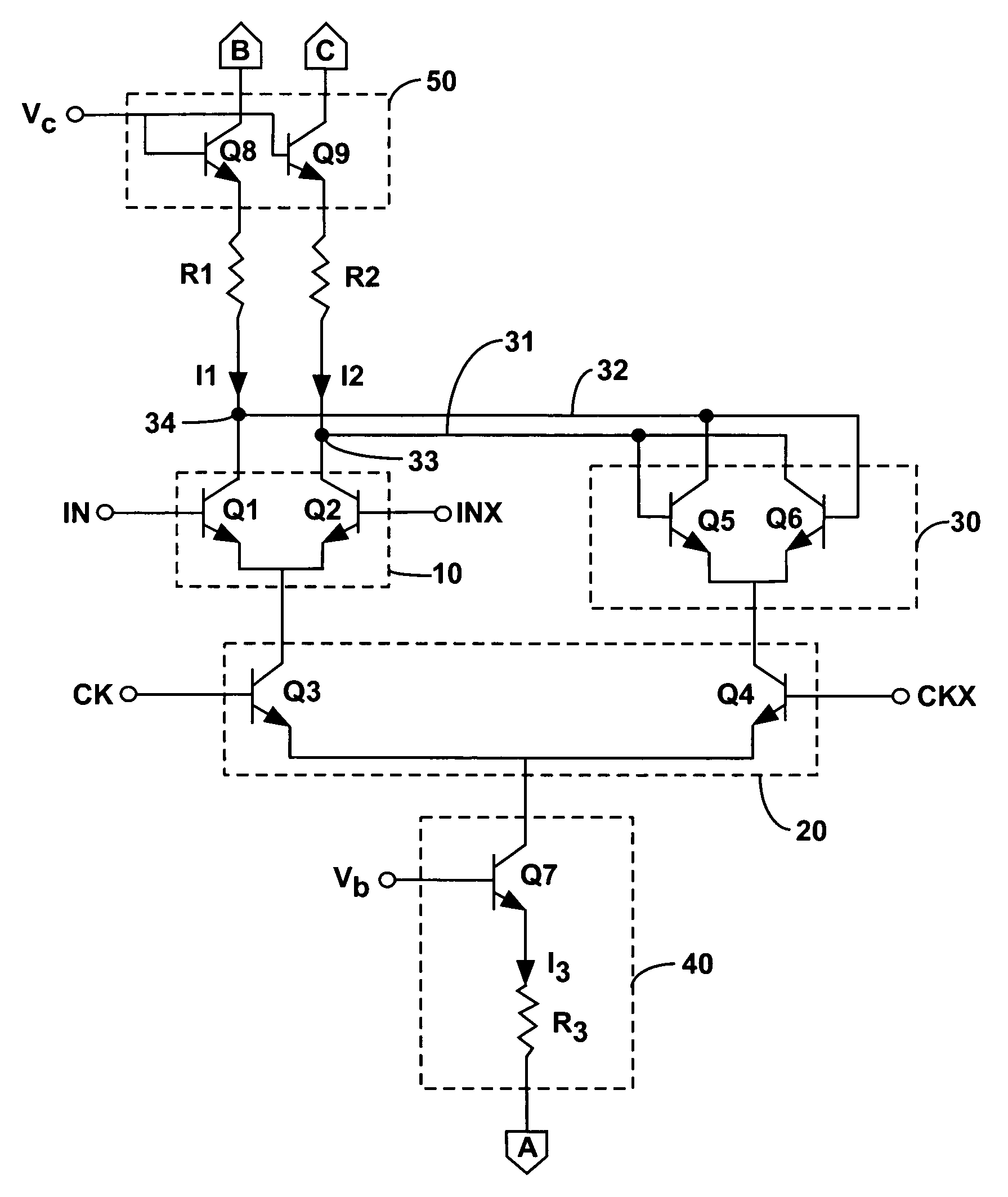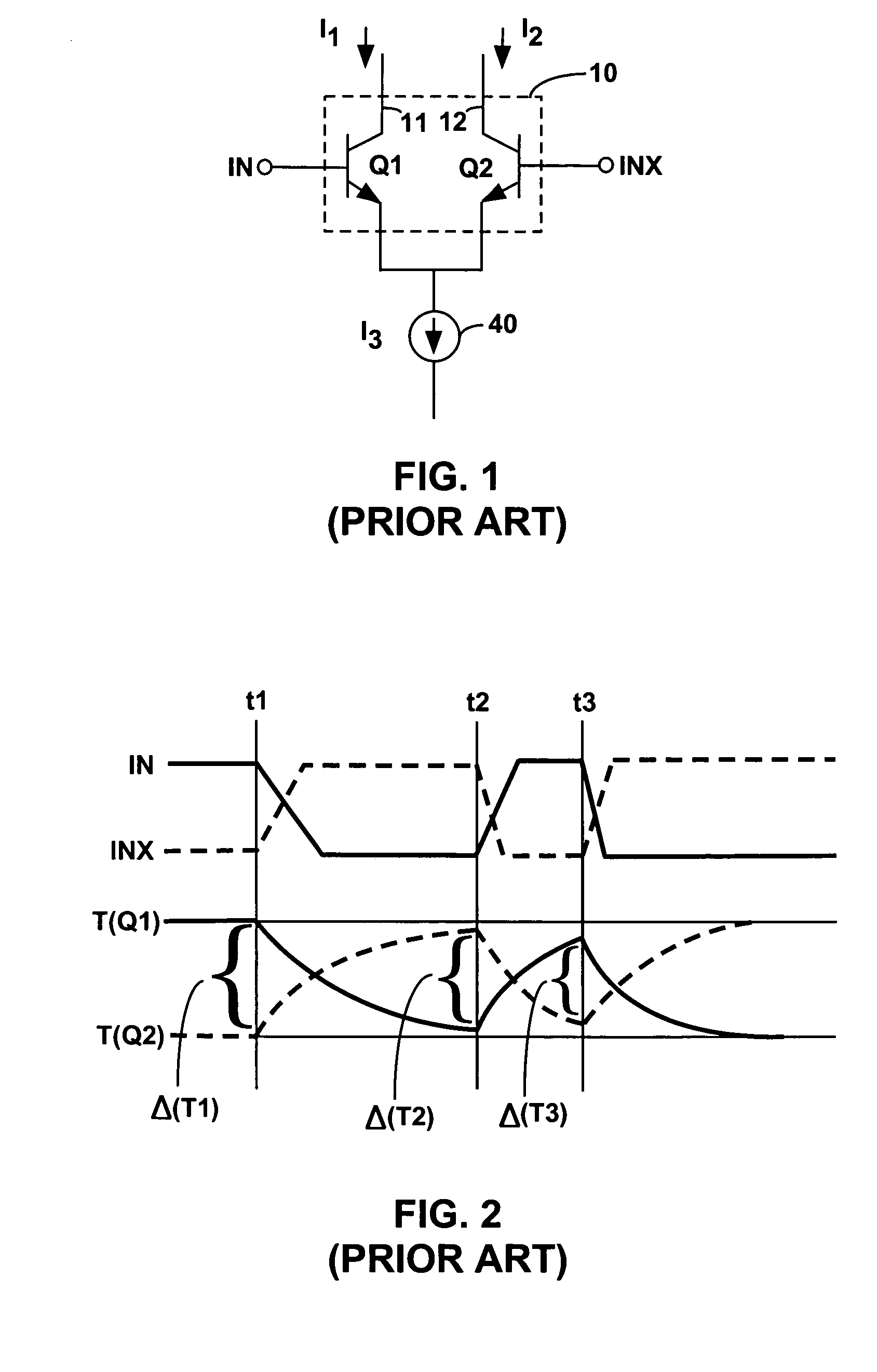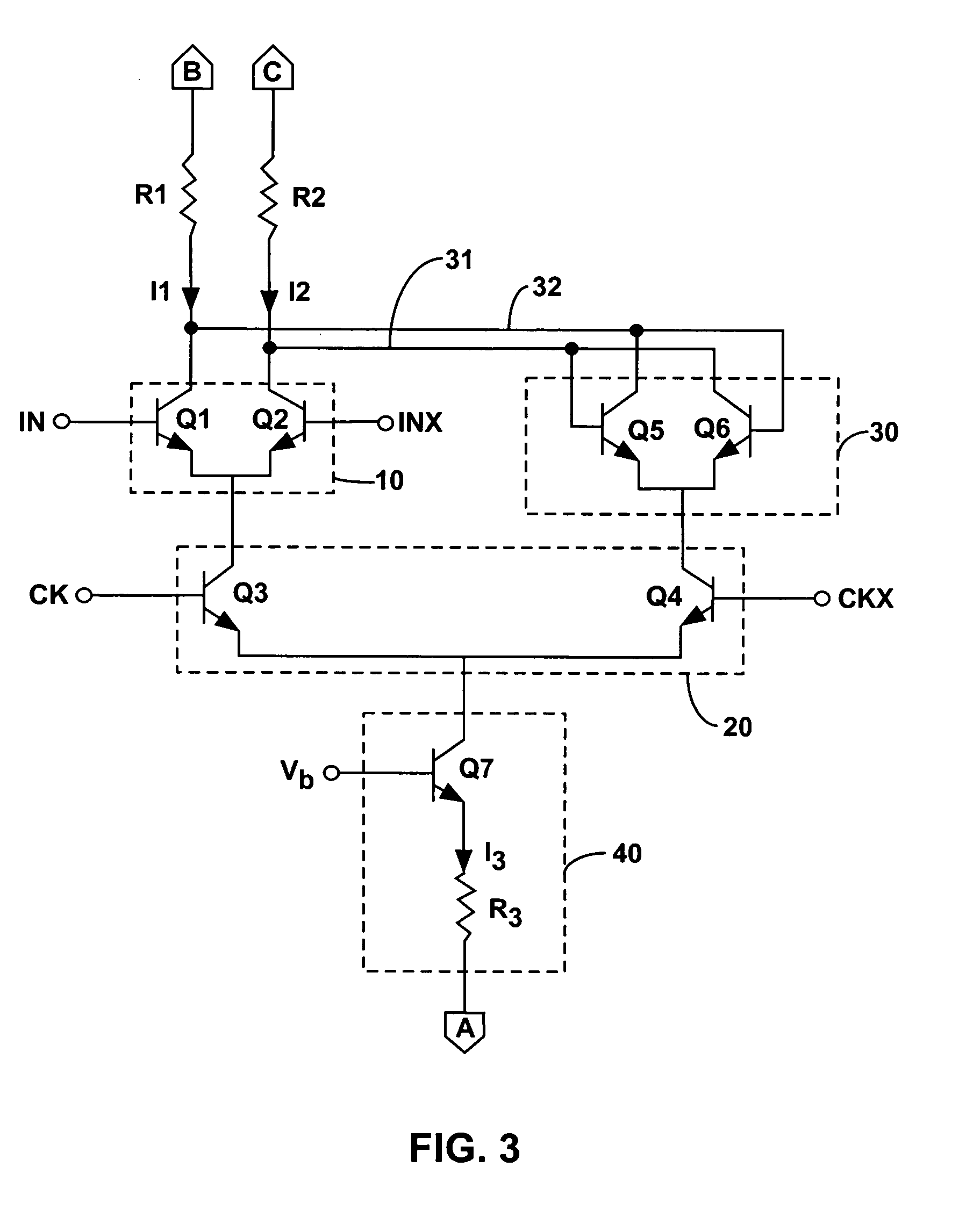Clocked D/A converter
a converter and clock technology, applied in pulse generators, pulse techniques, instruments, etc., can solve the problems of thermal hysteresis, thermal hysteresis is, therefore, unacceptable, and requires double power dissipation, and achieve the effect of overcoming the thermal hysteresis drawback of transistors q1 and q2
- Summary
- Abstract
- Description
- Claims
- Application Information
AI Technical Summary
Benefits of technology
Problems solved by technology
Method used
Image
Examples
Embodiment Construction
[0023]FIG. 3 shows a clocked NRTZ DAC according to a preferred embodiment of the present invention. A differential transistor pair 10 is connected with a clock circuit 20 and a bistable circuit 30. The bistable circuit 30 enables latching and operates as a positive feedback amplifier. The clock circuit 20 is also connected with a current generator 40 and the bistable circuit 30. The differential transistor pair 10 and the current generator 40 can be identical to those of the prior art shown in FIG. 1 of the present application. For example, FIG. 3 shows that the transistor pair 10 comprises npn bipolar transistors Q1 and Q2. The bases of Q1 and Q2 receive digital voltage input signals IN and INX, respectively. The emitters of Q1 and Q2 are connected together, and the analog current output of the DAC (currents I1, I2) is taken on the collectors of Q1 and Q2. The current source 40 comprises npn bipolar transistor Q7 and resistor R3, connected with the emitter of transistor Q7. The val...
PUM
 Login to View More
Login to View More Abstract
Description
Claims
Application Information
 Login to View More
Login to View More - R&D
- Intellectual Property
- Life Sciences
- Materials
- Tech Scout
- Unparalleled Data Quality
- Higher Quality Content
- 60% Fewer Hallucinations
Browse by: Latest US Patents, China's latest patents, Technical Efficacy Thesaurus, Application Domain, Technology Topic, Popular Technical Reports.
© 2025 PatSnap. All rights reserved.Legal|Privacy policy|Modern Slavery Act Transparency Statement|Sitemap|About US| Contact US: help@patsnap.com



